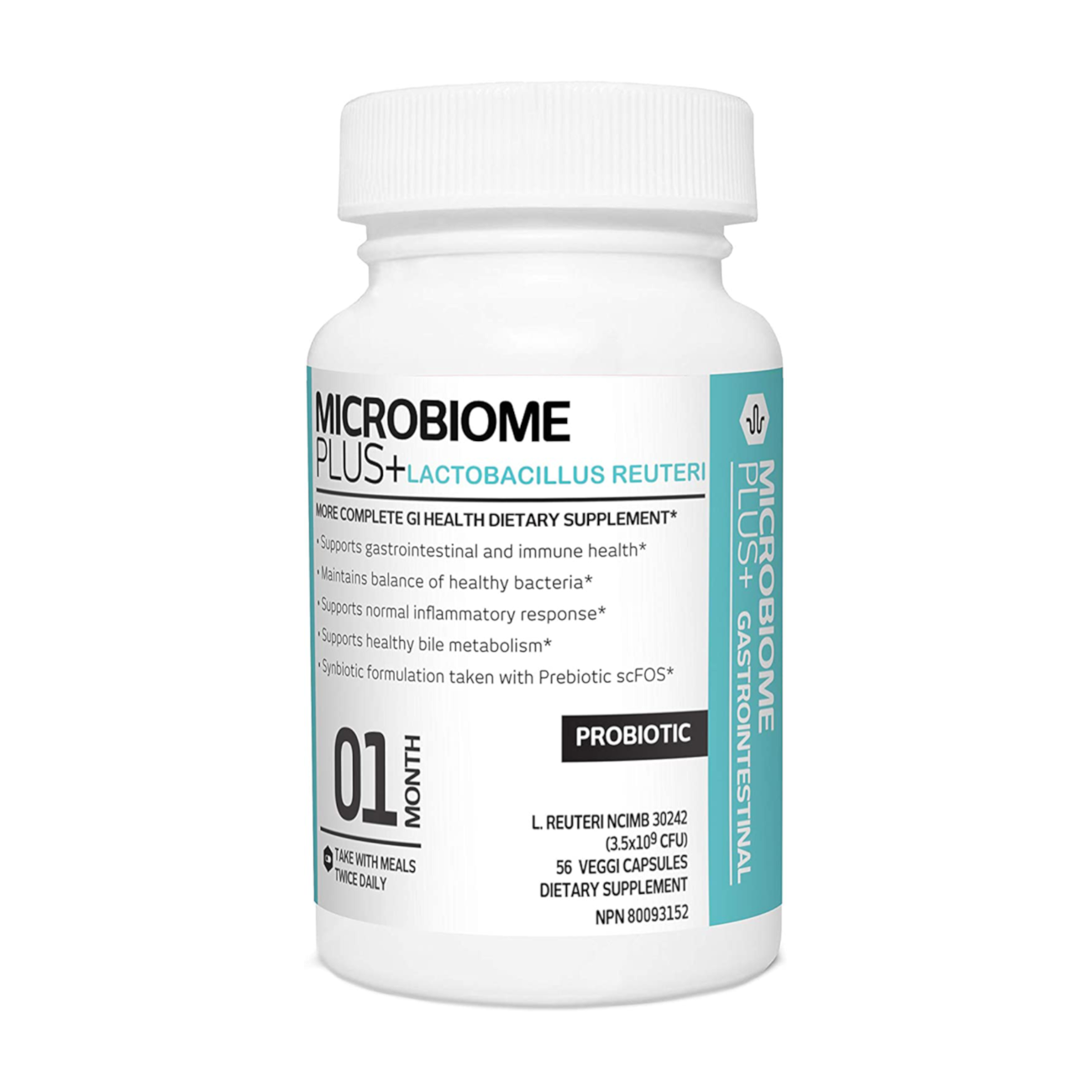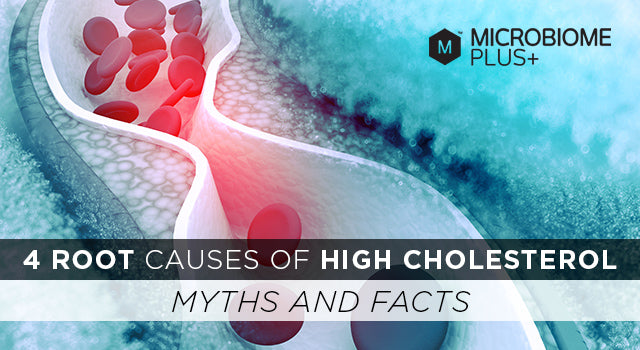For a long time, people have been told that saturated fat in food causes high cholesterol levels and heart disease. As new research comes out, it’s time to question and debunk this and other long-standing myths about cholesterol. Read on as we break down the scientific facts to get down to the possible root causes of high cholesterol levels.
Disclaimer: This post is for informational purposes only. Other causes that are beyond the scope of this article may also affect cholesterol levels. Ask your doctor if you should have a cholesterol test. If your cholesterol levels are high, your doctor may run more tests to determine the underlying causes and suggest treatment. Be sure to consult your doctor before making any major changes to your lifestyle, diet, or supplements regimen.
What Can Cause High Cholesterol?
1) Diet
✔ Fact: A Nutrient-Dense Diet Supports Cholesterol Balance
Eating a diet rich in fruits, vegetables, whole grains, nuts, seeds, and fish supports healthy cholesterol levels. Getting plenty of prebiotics and probiotics also helps (R, R).
✖ Myth: Foods High in Saturated Fat Cause High Cholesterol
Foods that contain cholesterol are usually high in saturated fat, such as fatty meat, full-fat dairy, and eggs.
However, the research on their health effects thus far has been controversial (R, R).
A 2019 study that analyzed data from 29,615 US participants reported a link between eating more dietary cholesterol or eggs with heart disease and deaths from any cause. Researchers are still debating whether their findings are scientifically robust (R).
Other published analyses of clinical trials concluded that saturated fats do not increase the risk of heart disease. One large study even reported lower heart disease risk with increased intake of energy from saturated fat (R, R, R).
✔ Fact: Not All People Respond in the Same Way to a High-Cholesterol Diet
Individual differences can help explain some of the controversies around high-saturated-fat diets.
According to clinical studies, most people see no or only a mild increase in cholesterol blood levels in response to a high-cholesterol diet. They are classified as hypo-responders (R).
On the other hand, about a third of people are hyper-responders and see a dramatic increase in their cholesterol levels on a high-cholesterol diet (R).
All in all, the amount of cholesterol in your food does not equal the amount of cholesterol in your blood. Exactly how food impacts your blood cholesterol levels possibly comes down to genetic tendencies, which we cover further below (R).
✔ Fact: Trans Fats Increase Cholesterol and Heart Disease Risk
Data undoubtedly reveal that trans fats are harmful. According to studies, a trans fats intake above 4%–6% increases blood LDL cholesterol (the “bad” cholesterol) (R).
The FDA states that removing trans fats from processed foods could prevent thousands of heart attacks and deaths each year.
2) Lifestyle
✔ Fact: Smoking, Obesity, and Lack of Exercise Increase Cholesterol
High cholesterol is often tied to unhealthy lifestyle choices. Smoking, being inactive, drinking too much alcohol, and obesity put people at risk of high cholesterol (R).
3) Age and Health Status
✖ Myth: Age Doesn’t Affect Cholesterol Levels
Cholesterol levels tend to increase with age. But scientists have yet to define an optimal range for older people since excessively low cholesterol may be as dangerous as high levels (R).
✔ Fact: Chronic Health Problems and Medications Can Raise Cholesterol
Diabetes increases the risk of high cholesterol, damage to the arteries, and heart disease (R).
Stress is another factor that has been linked to free radical damage, inflammation, chronic health problems, and high cholesterol (R, R, R).
Many medications can also raise cholesterol levels (R).
4) Genetics
✖ Myth: If High Cholesterol Doesn’t Run in Your Family, Your Genes Don’t Matter
When someone says that they have a family history of high cholesterol, they are usually referring to genetic disorders called familial combined hyperlipidemia or familial hypercholesterolemia (R, R).
However, this is just the tip of the genetics iceberg.
At a basic level, there are three main potential reasons for high cholesterol levels:
- Absorbing too much cholesterol in the gut
- Producing too much cholesterol in the liver
- Inefficiently removing excess cholesterol from the body
Have in mind that these are not mutually exclusive. Genetic factors interact with other genetic factors, diet, and lifestyle. Plus, other genetic factors (including ApoE4) that are beyond the scope of this article can also impact cholesterol levels (R).
✔ Fact: Some People Can Have High Cholesterol Because They Have a Genetic Tendency to Absorb It in Excess (Hyperabsorbers)
About 25% of people are cholesterol hyperabsorbers. They tend to absorb lots of cholesterol and produce little. Hyperabsorbers are more likely to have heart disease despite similar HDL and LDL cholesterol levels (R, R).
Identifying hyperabsorbers can make a big difference to doctors when it comes to treatment (R).
Interestingly, research reveals that most people with familial hypercholesterolemia are hyperabsorbers (R).
Aside from genetics, age increases the chance of being a hyperabsorber, especially in postmenopausal women (R, R).
Read More
Buy Probiotic Supplements
Written By:












1 comment